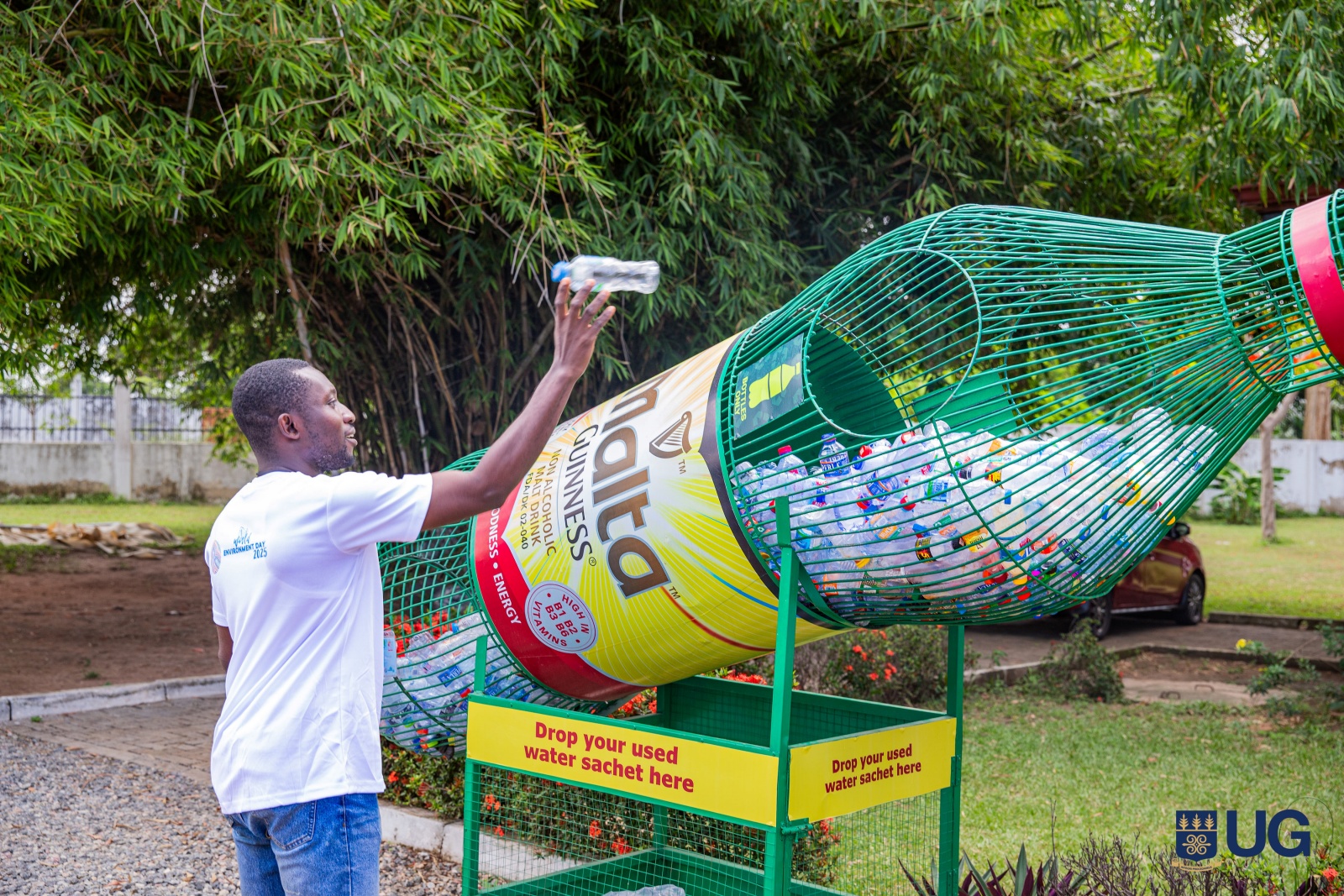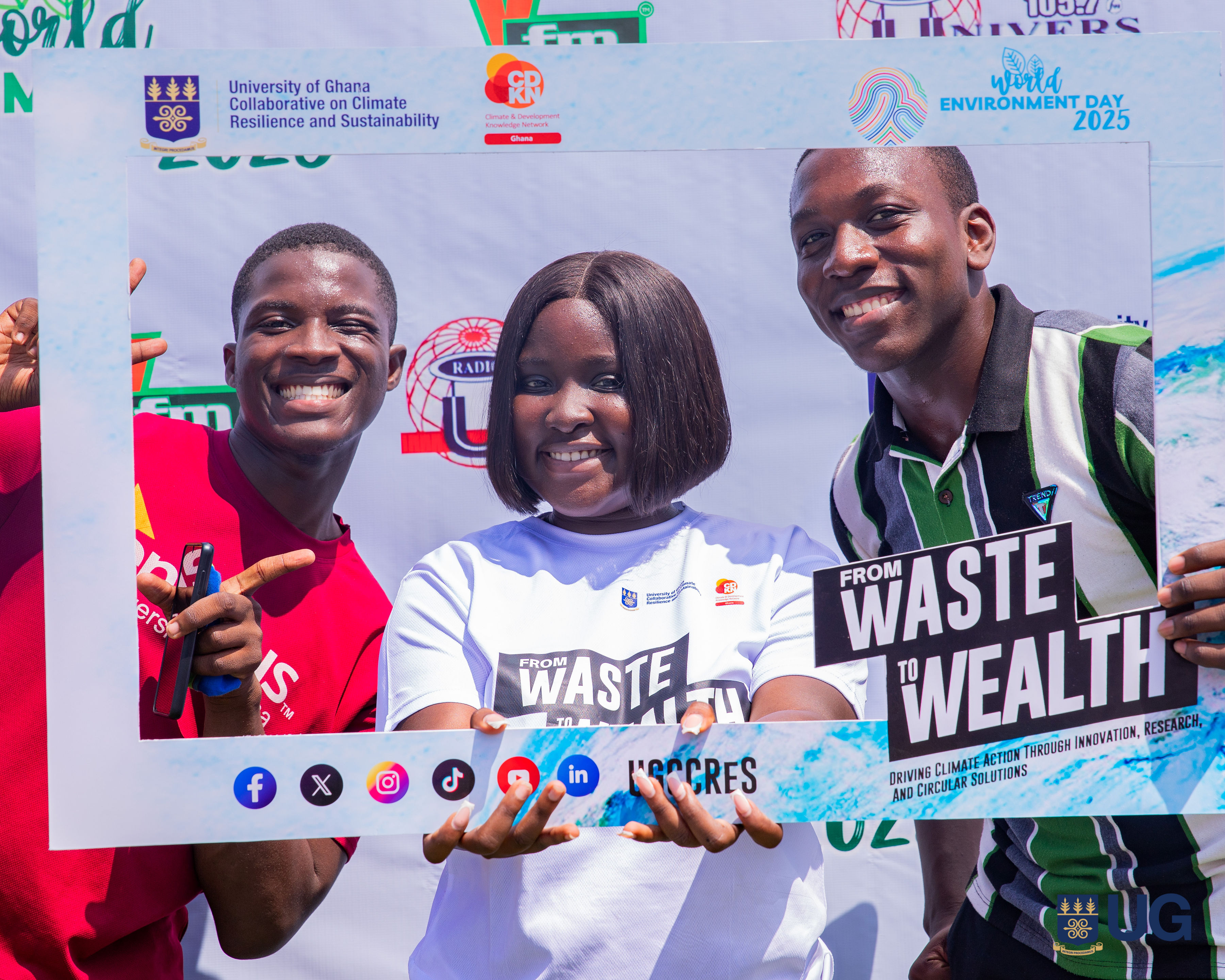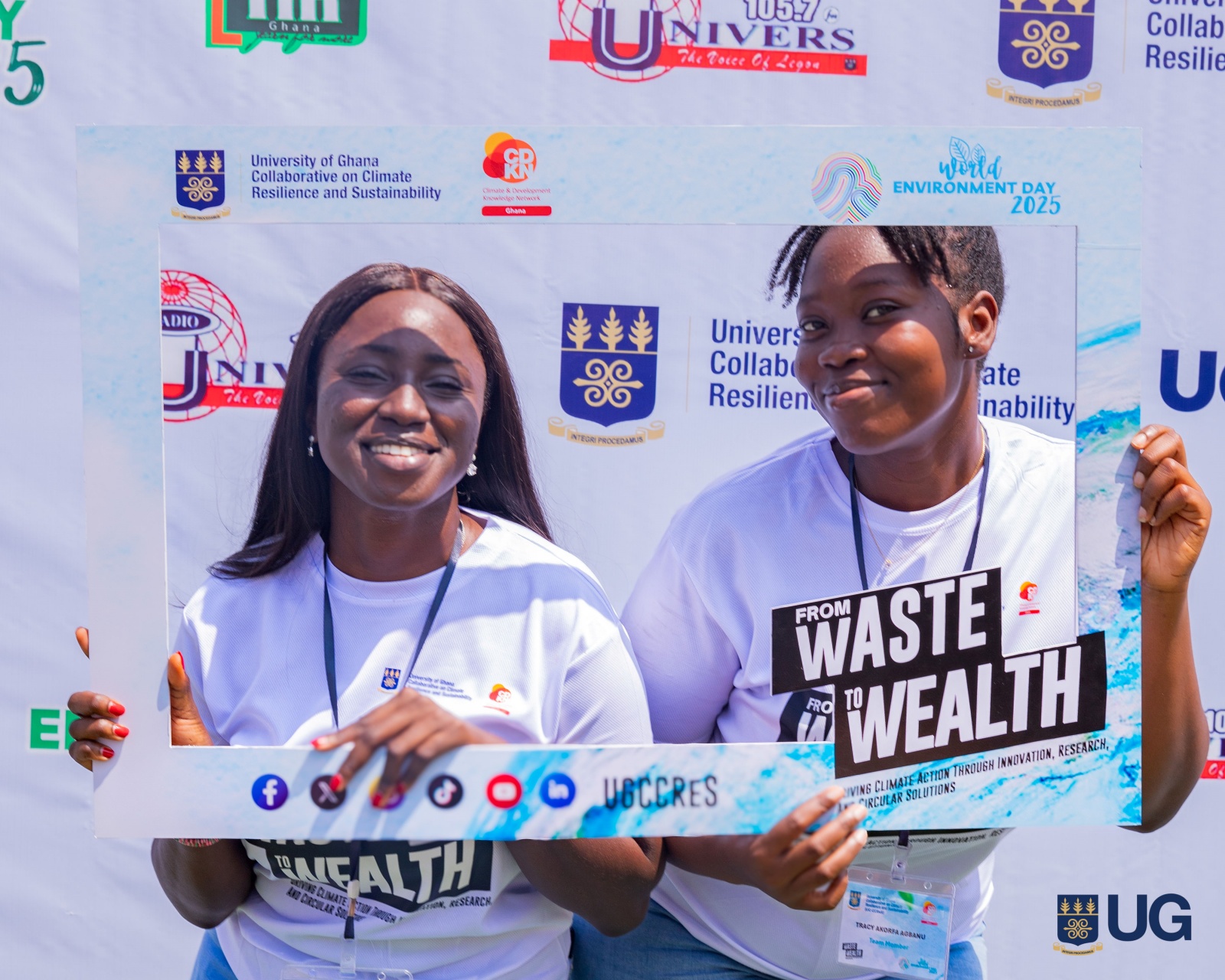Turning Waste into Wealth: UG’s Drive for Climate Innovation and Circular Solutions -story

To mark World Environment Day 2025, the University of Ghana, through its Collaborative on Climate Resilience and Sustainability, hosted an event themed “From Waste to Wealth: Driving Climate Action Through Innovation, Research and Circular Solutions.”
The programme showcased practical, research-based approaches to sustainability, including an exhibition of eco-friendly products, indigenous plants and a virtual hub of digital climate innovations.
Deputy Director Technical at the UG Collaborative on Climate Resilience and Sustainability and Founding Director of the Institute for Environment and Sanitation Studies, Prof. Chris Gordon, provided an overview of the climate collaborative initiated three years ago in partnership with the Mastercard Foundation and universities from Cambridge, Uganda and South Africa. He highlighted a milestone achievement, thus UG securing $26.8 million in funding as part of a broader $100 million grant to support sustainable development and climate action over eight years.
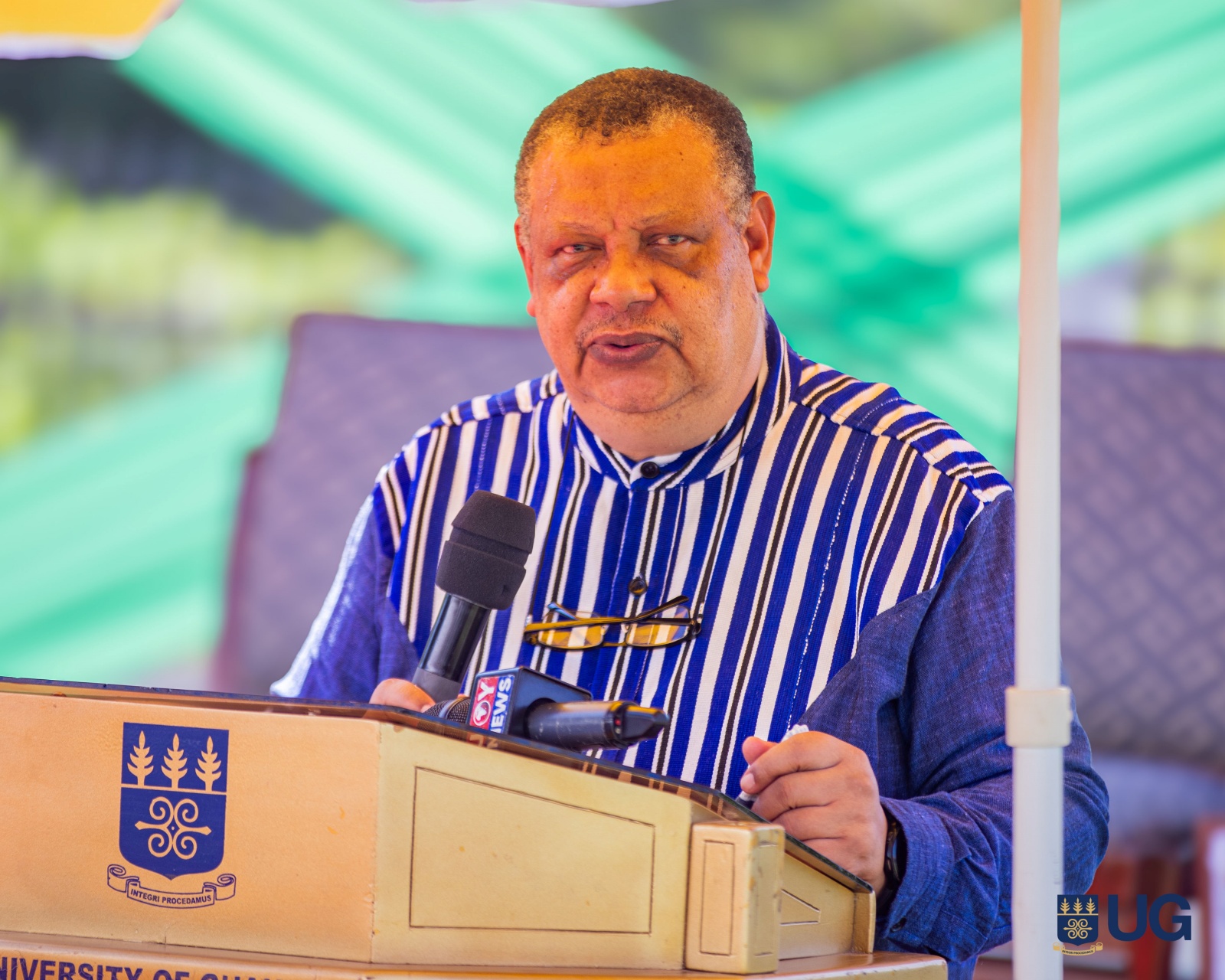
He noted that the initiative prioritises inclusivity, with a focus on empowering women, people living with disabilities and displaced populations, dedicating 70% of its funding to female applicants. He outlined the project’s four core pillars: capacity building through training, innovative research, strong partnerships, and entrepreneurship, designed to create opportunities for youth to drive sustainable change.
Dr. Derek Sarfo-Yiadom, representing the CEO of the Environmental Protection Agency (EPA), addressed the environmental and economic impacts of poor waste management.
“We have all witnessed the detrimental effects of improper waste management in this country, and its direct impact on health, lives, and properties,” he said, pointing to issues such as overflowing landfills, polluted streets, and blocked drainage systems.
He emphasised that embracing a circular economy, where waste is minimised and resources are reused, offers a dual benefit: environmental protection and economic empowerment.
Representing the Minister of State for Climate Change and Sustainability, Technical Director Mr. Cedric Dzelu underscored the importance of research, innovation, and youth leadership in advancing Ghana’s climate goals. He reiterated the government’s commitment to decentralising climate governance through the creation of climate and sustainability units in all 16 regions and local government offices, driven by academic research.
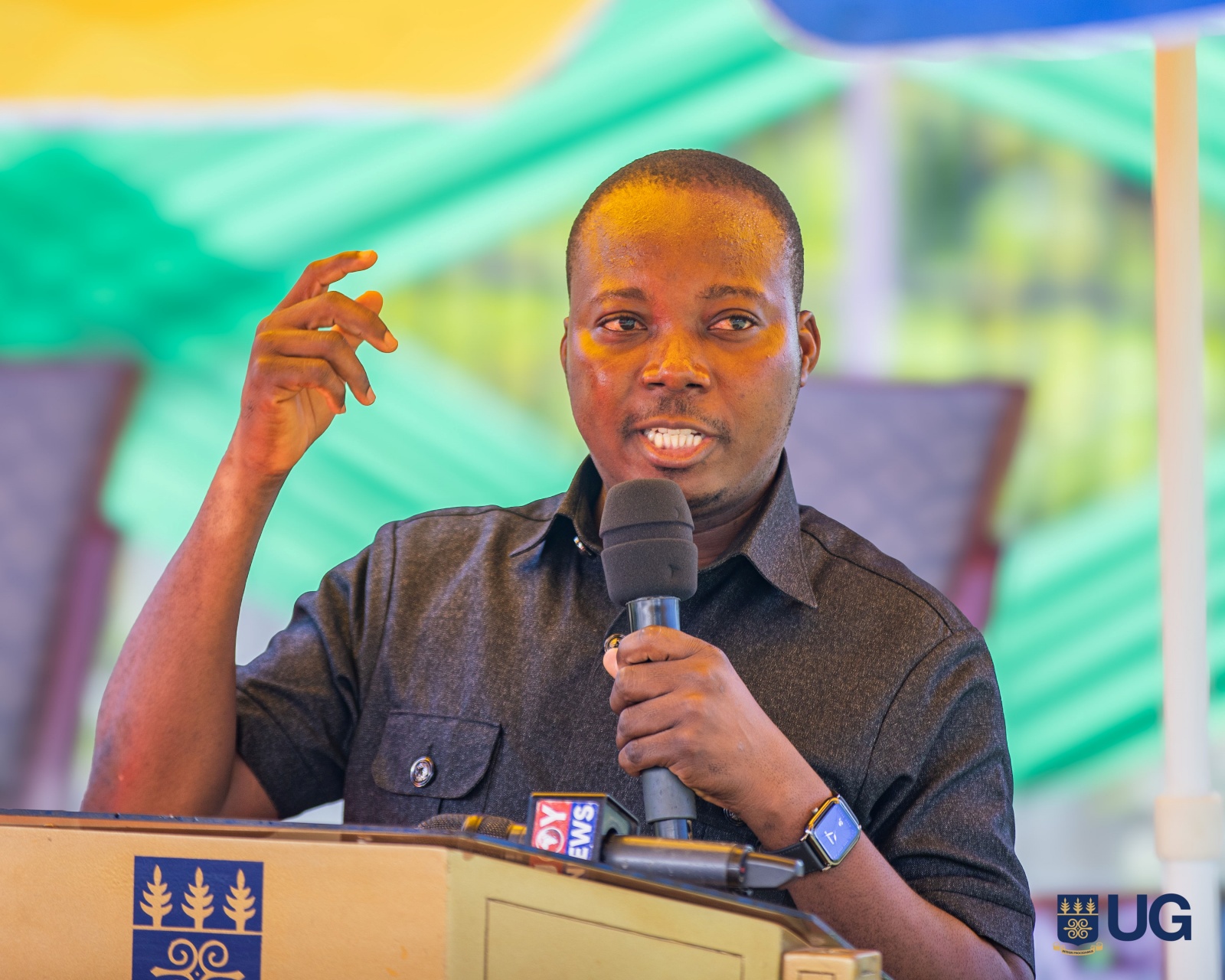
He also announced the Minister’s formation of a National Climate Change and Sustainability Hub to support youth-led green enterprises. “Innovation is not a luxury, it is a necessity for climate resilience,” Mr. Dzelu stated.
Ms. Catherine Adodoadji-Dogbe, representing UNDP Ghana, applauded UG’s leadership in driving climate resilience through innovative approaches. She cited the success of UNDP’s Waste Recovery Innovation Challenge, which has supported 14 organisations with over $400,000 in funding. “Let us continue to work together, leveraging our collective intelligence to ensure that the resources sustaining us today will continue to support future generations,” she concluded.
A panel discussion brought together Dr. Derek Sarfo-Yiadom (EPA), Dr. Daniel Dzidzienyo (UG-CCRes) and Mr. Venam A. Sondo, co-founder of Chance Afrique, to explore the multi-sectoral potential of waste-to-wealth initiatives in Ghana. The panellists agreed that waste conversion is not just an environmental fix but a pathway to economic growth, job creation, and climate resilience. However, they also stressed the need for policy alignment, innovation, and cross-sector collaboration to unlock its full potential.
In a presentation, Dr. Etsey Daniel Dodor highlighted UG-CCRes’s new Compost Project as a model for climate-smart agriculture. The initiative uses biochar-based composting to transform agricultural, market, and animal waste into pelletised, nutrient-rich compost. He emphasised that the project supports sustainable agriculture, food security and climate resilience while offering employment and training to at least 300 youth, with 60% participation by women and 10% by persons with disabilities. Over 2,000 smallholder farmers are expected to benefit.
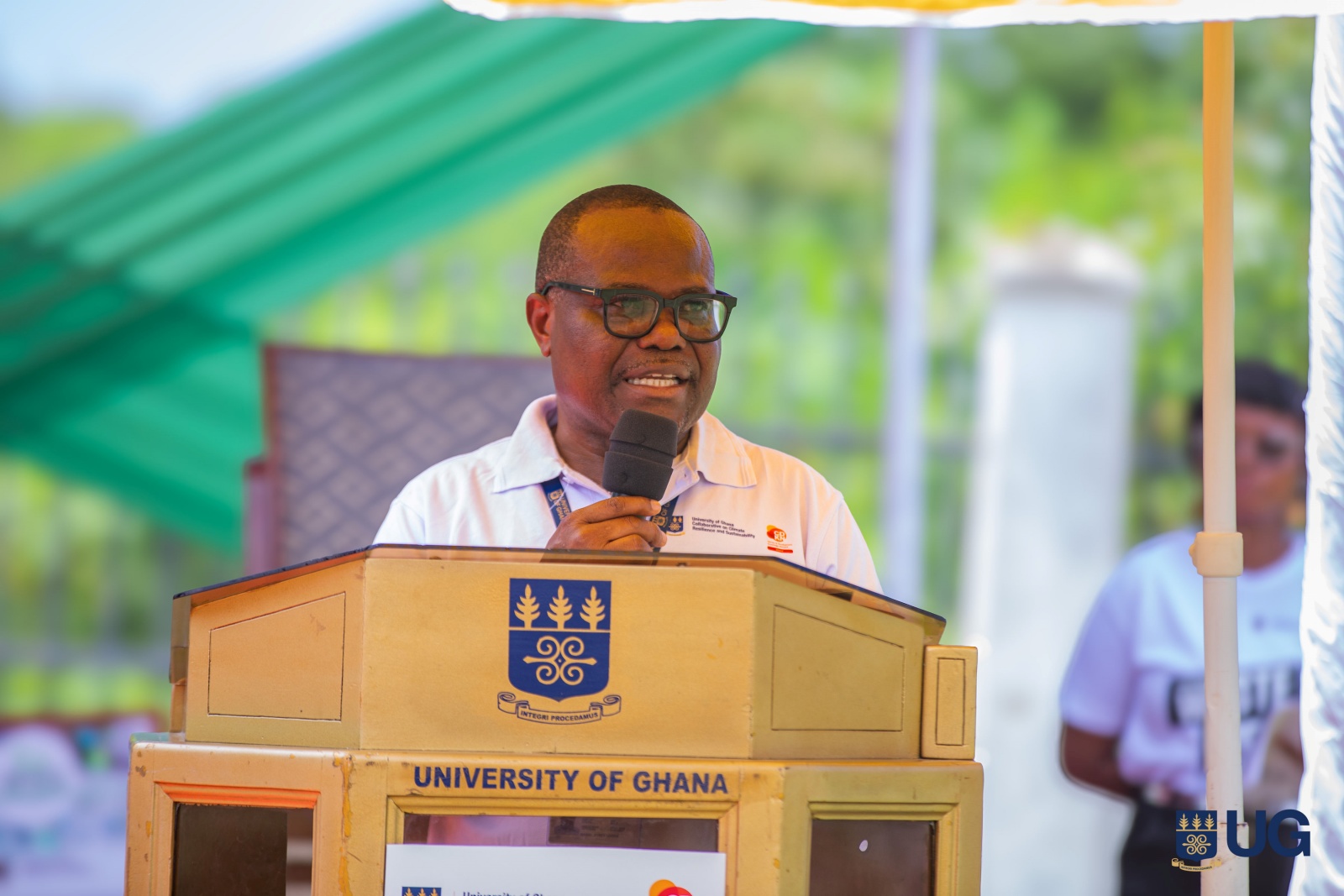
The event reaffirmed the university’s leadership in promoting climate resilience and circular solutions in Ghana.
